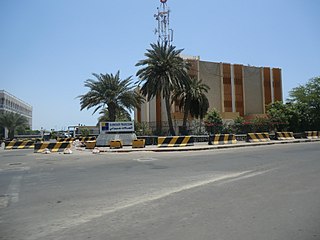Communications in Burundi include radio, television, fixed and mobile telephones, the Internet, and the postal service in Burundi.

Communications in Liberia include the press, radio, television, fixed and mobile telephones, and the Internet.
The media of Mali includes print, radio, television, and the Internet.

The media in Burkina Faso consists of print media and state-supported radio, news, and television stations, along with several private broadcasters with programs consisting of sports, music, cultural, or religious themes.
Algeria has more than 45 independent Arabic language and French language publications as well as 4 government-owned newspapers, but the government controls most printing presses and advertising. The Algerian newspapers with the largest circulations are Echourouk (1,800,000), Ennahar (1,600,000), El Khabar (1,000,000) and Quotidien d'Oran (700,000); all four are employee-owned. The government also owns all radio and television outlets, which provide pro-government programming. In 2004 and 2005, the government increased the access of Berber language and culture to both print and broadcast media.
The Media in Angola is primarily controlled by Angola's dominant political party, the People's Movement for the Liberation of Angola (MPLA), led by José Eduardo dos Santos, the country's president.

Media in Benin was formerly controlled by the government but there has been a loosening of control since the introduction of democracy to the country in the 1990s.
Media in Botswana is controlled by the government.
The media of Cameroon includes independent outlets. The nation has only one national newspaper, which is state owned.

This article is about the Media in Cape Verde including its telecommunications, television and radio.
Media of the Central Africa is controlled by the government.
Media in Chad is controlled by the government.

Media in the Democratic Republic of the Congo are both nationally and internationally state owned and operated.
Media in Ivory Coast is controlled by the government. Audiovisual communications are regulated by the Conseil national de la communication audiovisuelle (CNCA), an administrative arm of the national government.

Media in Djibouti is controlled by the government.
The media of Gabon is primarily monitored by the Gabon government. Although the main newspapers are associated with the government, there are private broadcasters, and private weekly newspapers that are mostly controlled by opposition parties.
Media of the Republic of the Congo are severely restricted by many factors, including widespread illiteracy and economic underdevelopment.
The Media of Mozambique is heavily influenced by the government. Information in Mozambique is relayed by means of television, radio, newspapers, magazines and the internet. Radio is the most popular form of media. Media outlets are regulated by the Supreme Mass Media Council.
The following is a timeline of the history of the city of Bujumbura, Burundi.






